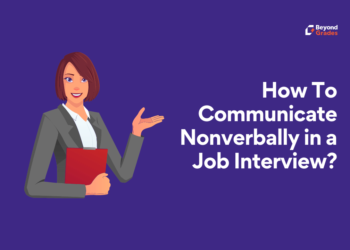[ad_1]
Work from home has been great for most people. You get to work comfortably from home without having to worry about commuting to the workplace. However, one issue is that people working from home collectively suffer from- zoom fatigue.
Experts are saying that attending virtual meetings all day is causing stress and exhaustion. This is because zoom meetings are more mentally challenging than regular meetings.
In virtual meetings, you are forced to stare at the computer screen for long periods of time. You are also unable to read other people’s body language, so there is an added difficulty in communication.
With all the issues people have with video conferences, there is now talk about looking at alternatives to virtual meetings. There is absolutely no reason to have meetings for every little thing.
Most meetings can be turned into emails or calls. Group chat is another one of the alternatives to virtual meetings; in these times of advanced technology, countless ways to communicate exist.
If video conferences are causing so much stress to employees worldwide, there is a need to reduce it effectively. The mental health of workers should be the priority of every company all over the world, especially during the pandemic.
Following are 5 Alternatives to Virtual Meetings –
1. Write an Email
Next time you are considering holding a meeting, ask yourself whether the information you need to share with your team can be communicated just as effectively through email.

There will be urgent or essential matters for which scheduling a meeting will be unavoidable, but for smaller things, often emails will do the trick. You can let people know in the email that they can contact you if they need more clarification.
Even though emails are not the ideal form of communication for a workplace, they can be very useful to share detailed information. If you have instructions to share about a project or an assignment, you should consider using email, as employees will be able to read it carefully and be able to refer back to it when needed.
2. Send Direct Message
You can always message the team through your company’s software to communicate. Especially if it’s a very short message, there is no need to send an email.
Also, if you simply want to ask for an update or clear a simple doubt, sending a direct message would be more effective. You can also chat with your boss or someone senior if you need to. These days things are much more casual at companies.
3. Record a Video
If you want to give a set of instructions to your team, instead of a meeting, you can record and send a video to them. This will be more useful if your instructions are dense or technical, as your team will be able to review that video whenever they have any doubts.

This will decrease stress on other employees, as well as they can view the video comfortably without worrying about missing any important detail. There are a lot of applications available to record and send a video to your team.
4. Make a FAQ Document
If you are constantly fielding common questions from employees, consider making a FAQ (Frequent Asked Questions) document so that you don’t have to waste time answering the same questions repeatedly.
This doc can be very useful for new hires as most of their questions will be answered in it. You can send it as an email or pin it on the company’s messenger.
5. Audio Conference Call
You can always pick up the phone to talk to your colleagues. Numerous apps provide the option of a conference call with multiple callers.

It is also easier to talk about things on the phone as compared to waiting for someone to respond to your email. Audio calls cause much less stress as you don’t have to worry about your appearance or people’s body language.
Even if you are at a video conference, you can suggest turning off the camera for everyone. Audio calls have gone out of fashion these days, but they may be the best option to combat zoom fatigue.
Other Measures
You can take other measures to reduce “zoom time” in your workplace. Firstly, talk to your boss about how zoom meetings are having a negative impact on the mental health of your colleagues.
Try to convince him to reduce the number of meetings in a day. If a colleague proposes a meeting, argue for some alternative form of communication instead. However, if it is someone from management asking you to attend a meeting, it is best not to argue.
Conclusion
Zoom fatigue has hit people working from home all over the world. Thankfully, there are alternatives to virtual meetings that can help reduce the number of virtual conferences. Have you ever experienced zoom fatigue? Which one of the alternatives to virtual meetings did you suggest? Let us know by writing a comment in the section below.
Also Read:
Mentor Monkey aims to provide the best social learning ecosystem for career aspirants and professionals to help millions of young minds ace in their career and professional journey and discover their true valour. Join us now!
[ad_2]
Source link









